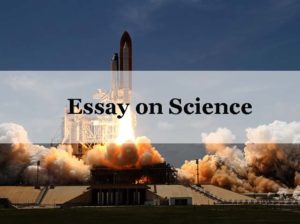Science can be considered as the set of knowledge, conceived within a structured and orderly system, and obtained through observation and experimentation methods, where it is sought to obtain the truth and knowledge about the behavior or nature of the elements or phenomena studied.

Importance of Observation
The maximum premise of Science is to create, collect and embrace knowledge, a fact that is even manifested in its own noun “science”, which – as indicated by etymological sources – comes expressly from the Latin term scientĭa, and that It can literally be translated as “knowledge.” However, this knowledge is not innate or obtained through empirical means, but is produced by the direct contact of the individual with the object studied, through a key element in every scientific process: observation.
In this sense, both from Philosophy and from Science, it is recognized in the Observation and the capacity of the individual in this field, fundamental factors for the development of any scientific process. Thus, the Observation would allow to be aware of the environment in the first instance, in order to perceive the phenomena found in it. The ability to observe will cause the individual to start asking questions, which in turn stimulate their reasoning. Therefore, the person will also choose to infer the possible causes (hypotheses) which he will also try to verify (experimentation).
During this process of experimentation and verification of the hypotheses, the capacity of Observation of the person becomes of great importance again, since it is this who will also allow him to interpret and understand the results that the experimental phase throws, which beyond checking or denying the hypothesis, will generate answers that must be properly evaluated. In this way, Observation is one of the most important phases and qualities of the entire scientific process, since it is vital to undertake the process, generate the methods and analyze the results, in favor of the production and systematization of knowledge, the primary objective of the science.
Contemplation, the origin of the Observation
However, it is necessary to remember that the Scientific Observation must be a free observation of any type of prejudices or preconceived ideas, which could remove the scientist from the objective state, by means of which he must record the elements and phenomena observed in the object of study. In this sense, the Scientific Observation would be much more related to the philosophical concept of Contemplation, which in a metaphorical sense referred to the ability to observe something closely, from the suspension of knowledge, in order to integrate into one’s being truths and characteristics observed in the element studied.
In this way, in academic terms, this concept of Contemplation would be linked to what was raised by the classical philosopher, Plato, who understood this entity as the indispensable dialectical method for obtaining knowledge. Through some of the platonic dialogues of maturity, this philosopher begins to move away from his inclination to see reminiscence as an adequate way to access knowledge, to opt for contemplation, which according to this thinker was the way to obtain the higher level of knowledge, because for its scope it would be necessary to make use of observation-contemplation, intelligence and reason, exercises that would allow the individual to access the world of Ideas.
Scientific method
These conceptual levels that conceive the Observation as a pillar of Science remain in force today, being this intellectual exercise one of the bases of the scientific method accepted today, even when each of the Sciences – according to their nature and the object of study – you can generate your own methods. However, in general rules, the scientific method is understood as the sequence of steps that are interrelated and arranged respectively in order to bring the researcher closer to the knowledge of the element or phenomenon that is established as his object of study. In this sense, it is pertinent then to briefly review which and in what order the phases of the scientific method would be presented:
Observation:
It is the first phase of the scientific method, it must be done with respect to the phenomenon or element that you want to study, being objective, and can occur from different points, both contemplative.
Description:
Once the individual has carefully observed the object of study, he must begin to describe the facts, phenomena or characteristics observed, in order to outline the first description of it.
Hypothesis:
Likewise, these first observations and descriptions will cause the researcher to start producing the first hypotheses about how or why the object of study behaves in a certain way.
Experimentation:
These postulates or hypotheses will then lead the researcher to develop methods that allow him to demonstrate in practice whether or not his conjectures coincide with the truth. However, not all sciences have forms of experimentation, even though the General Systems Theory (TGS) every day pays the field of interdisciplinary, which has allowed Sciences that did not have methods of experimentation every day have more tools that allow you to check your hypotheses on this plane.
Demonstration:
Once the results have been obtained and the margins of error have been weighed, the individual must then compare what was obtained with the initial hypothesis, in order to observe whether it was in principle proven or refuted.
Induction:
The researcher must then take on the task of stipulating and systematizing the results obtained.
Universal comparison:
Finally, the researcher must face the results and conclusions obtained, as well as the initial hypotheses, with reality, in order to give a real and pragmatic context to the knowledge obtained.